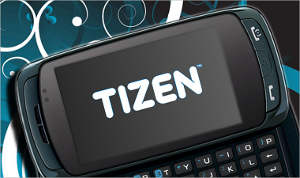Linux foundation has announced a new mobile operating system called Tizen. Samsung and Intel are the prominent backers of this OS, which will also work on tablets, netbooks, TVs and in-vehicle devices.

Tizen
is a new open source mobile and device operating system based on Linux
which will be designed to support multiple device categories such as
smartphones, tablets, smart TVs, netbooks, and in-vehicle infotainment
devices.
The project is hosted by the Linux Foundation with development led by
a technical steering team from Intel and Samsung. Tizen will build upon
technologies developed as part of the MeeGo and LiMo (Linux Mobile)
projects.
Intel, along with Nokia, was part of the Linux Foundation's earlier
project called MeeGo. "Over the next couple of months we will be working
very hard to make sure that users of MeeGo can easily transition to
Tizen, and we will be working even harder to make sure that developers
of MeeGo can also transition to Tizen." An Intel representative working
on the MeeGo project said on the project's website.
MeeGo is not dead but Nokia has left it in favour of Microsoft's
Windows Phone 7 as its smartphone OS. Intel is still backing MeeGo, but
will now move to Tizen and will use its knowledge for this new project.
Google recently announced its decision to buy Motorola, which will
put it directly in competition with device makers like Samsung, LG,
Acer, Asus and HTC who use Google's Android operating system in their
smartphones.
After the move it was widely speculated that the device makers will
look for a new OS to hedge the risk. With Samsung already participating
in the Tizen project, Acer and Asustek are expected to join it as well.
HTC is also evaluating its options (according to Digitimes,) but it is
clear that it was indeed keen on a new operating system.
There are several reasons to believe that this project will taste
success or will at least remain in focus. Samsung already has a
smartphone operating system under its belt with bada (an OS that has
seen a fair amount of success,) and will use its know-how to improve
Tizen. Intel too has a lot of experience with MeeGo, an OS which techies
used to love.
The other reason is that Linux Foundation has a fairly large number of members in Fujitsu, Panasonic, NEC, Motorola, ARM, ACCESS,
Casio, NTT Docomo, SK Telecom, Telefonica, Vodafone and a host of
others. While it is still not clear what their position with this new
project is, we certainly expect to hear some of them joining it soon.
Motorola could be ruled out as it is now owned by Google, the biggest
rival of this project.
The Tizen application programming interfaces are based on HTML5 and
other web standards, which means compatibility will not be an issue. And
that is why Linux Foundation anticipates that the vast majority of
Tizen application development will be based on these emerging standards.
According to the Tizen website, HTML 5 and web standards based APIs
will cover various platform capabilities such as messaging, multimedia,
camera, network and social media. For those who use native code in their
applications, the Tizen SDK will include a native development kit.
What is also good is that Intel will support Tizen with its Intel
AppUp developer program and a developer framework based on HTML5 and WAC
standards. Intel is also encouraging developers to continue building
and submitting apps for MeeGo netbooks already shipping, apps that will
be compatible — unchanged — on Tizen netbooks.
So by the time Tizen OS makes its first appearance, it will have a
good stack of apps. A lack of apps had killed HP's WebOS, which was
otherwise touted as a potential iOS killer.
HTML5 and Web Standards support means that this OS will be very
suitable for cloud based services like those of Amazon, Google cloud
service (Google Drive), Windows Sky Drive and iCloud.
Mobile manufacturers like Huawei and HTC are also trying their hands
at cloud services and so are mobile operators across the globe. These
companies will like this OS for this reason more than anything else.
Linux foundation will open the entire Tizen software stack from the
core OS up through the core applications and polished user interfaces.
Tizen and its SDK (software development kit) are expected to be released
in the first quarter of 2012, with the first devices hitting the market
in mid 2012.
No comments:
Post a Comment